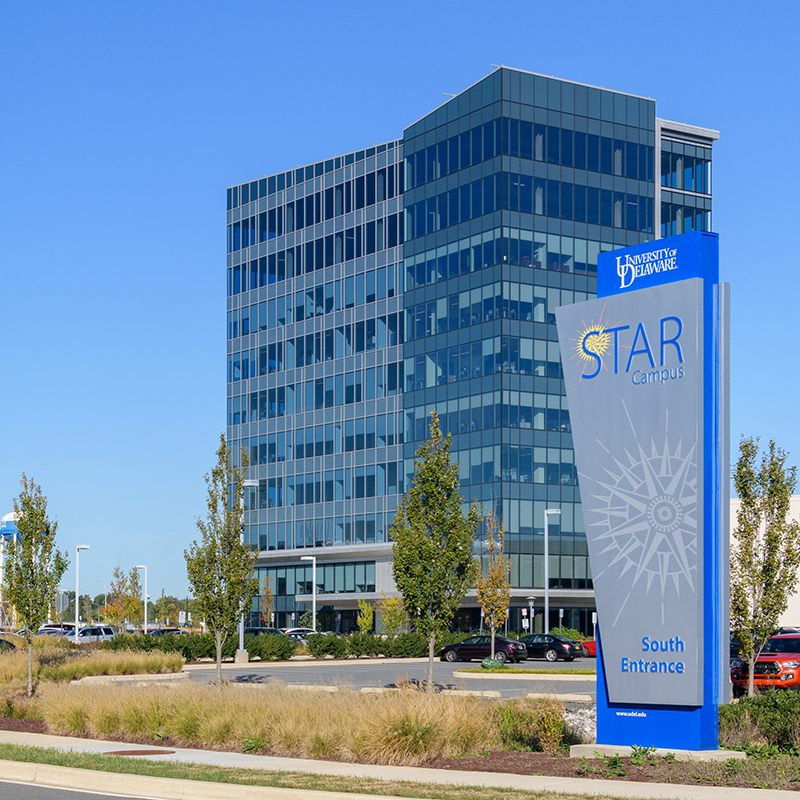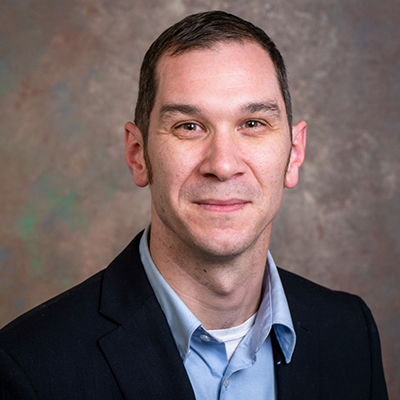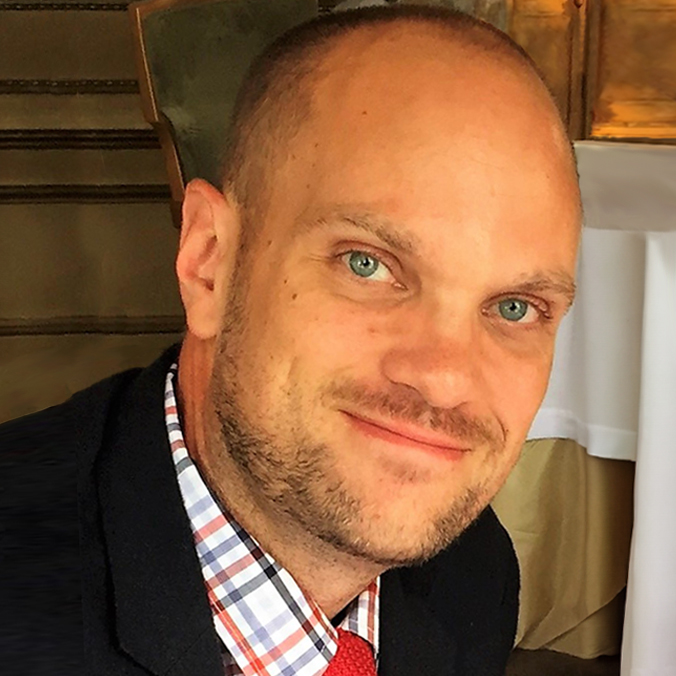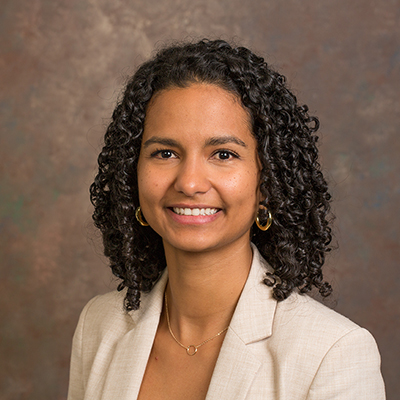
Institute for Community Mental Health Clinic
Hours: By appointment only
8 a.m. to 6 p.m., Monday to Friday

Providing mental and behavioral health services to the community

Located on the University of Delaware’s Science, Technology and Advanced Research (STAR) Campus, UD’s Institute for Community Mental Health Clinic (ICMH Clinic) provides mental and behavioral health services for children, adolescents, and adults. We are open to the community while also providing educational and research opportunities for UD faculty and students.
The ICMH Clinic offers individual psychotherapy, diagnostic assessments, and comprehensive psychological evaluations. We employ an evidence-based approach to mental health care. Our rigorously tested, research-based treatments have been proven to produce effective outcomes for clients.
Faculty from UD’s Clinical Science Doctoral Program direct the ICMH Clinic’s operations. Under the supervision of licensed clinical psychologists, trained doctoral students deliver evidence-based mental health care. The ICMH Clinic also collaborates with other STAR Campus health clinics and community partners to disseminate and implement health care services.
Range of Services
We offer many types of evidence-based psychotherapies for a variety of problems and serve all age groups, with expertise in treating depression and anxiety disorders, as well as behavioral difficulties in children:
- Individual therapy, with expertise in depression and anxiety disorders
- Family therapy
- Child/adolescent therapy
The ICMH Clinic also provides psycho-educational evaluations for children and adults with a variety of questions and concerns:
- Behavior and school problems
- Emotional distress/disorders
- Learning disabilities—children and adults
- Intellectual assessment—developmental disabilities, giftedness
- Personality assessment
Contact Us
The ICMH Clinic is now accepting both in-person and telehealth clients depending on the needs of the individual. Please call and leave a message with your contact information to find out more about our services. Your call will be returned within 2 business days.
Phone: 302-831-2717
Email: ICMHC-admin@udel.edu
- Please do not include any confidential or private health information when sending email.
Numbers to Call/Text in a Mental Health Crisis
For in-person evaluation:
If under 18, call: 1-800-969-HELP (4357)
If over 18, call 1-800-652-2929 in New Castle County or 1-800-345-6785 in Kent/Sussex Counties
For anonymous conversation:
Text: DE to 741741 for the Crisis Text Line
Call: 1-800-273-TALK (8255) to reach the National Suicide Prevention Lifeline
For Police or Medical Emergency call 911
Clinic Fees
Fees for the services provided at the ICMH Clinic are based on a sliding scale. The charge per service depends on the number of people in the family and total household (yearly) income. Our therapy sessions typically range between $18 and $60 per session, and our comprehensive psychological (and psycho-educational) evaluations typically cost between $225 and $750. Payment is due prior to services being rendered unless alternative arrangements have been made. There is no charge for the initial intake session regardless of type of service requested.
We can provide documentation of services should you wish to submit claims to your insurance. However, be advised that your insurance company may not accept your claim as services that are provided by trainees are usually not covered by insurance.
Payment
Payments may be made by credit card or online check (ACH) via our online payment form. Please contact us at 302-831-2717 with any questions.

Location and Hours
Clients are encouraged to enter through the south STAR Tower entrance. Elevators are visible just past the lobby on both sides, which can be taken to the sixth floor.
The ICMH Clinic is located on the University of Delaware’s Science, Technology and Advanced Research (STAR) Campus, on the sixth floor of the STAR Tower.
Please use the ICMH Clinic’s physical address to navigate to the appropriate parking lot and entrance:
100 Discovery Boulevard, Newark, Delaware 19713
Parking: Several visitor/patient parking spots are available for up to four hours during clinic appointments.
Hours: The STAR Tower is regularly open from 8 a.m. to 6 p.m., Monday to Friday. However, please note that ICMH Clinic hours are by appointment only. Once you have been assigned to a clinician, that clinician will contact you to schedule a mutually agreeable time. Appointments can be offered on some evening and Saturday morning hours, depending on need and availability.
Keith Bredemeier, Ph.D., is an assistant professor in the Department of Psychological and Brain Sciences at the University of Delaware. He received his doctoral degree in clinical/community psychology at the University of Illinois at Urbana-Champaign.
Bredemeier's research focuses on understanding risk factors for different forms of emotional distress (e.g., excessive worry) and related problems (e.g., suicidal ideation), with a focus of cognitive traits (e.g., intolerance of uncertainty) and processes (e.g., executive function deficits) implicated in these issues. He also studies the clinical implications of this work, spanning treatment protocol development, outcome evaluation, and outcome prediction. In his clinical work and supervision, Bredemeier specializes in cognitive-behavioral therapies for anxiety, depression, and related problems in adults, with a particular focus on exposure therapies, as well as diagnostic and cognitive assessment.
Ryan Beveridge, Ph.D., is the executive director of the Institute for Community Mental Health (ICMH), director of the Center for Training, Evaluation, and Community Collaboration (C-TECC), and a professor with the Department of Psychological & Brain Sciences at the University of Delaware. ICMH and C-TECC are embodiments of the NIMH-sponsored Delaware Project training vision, which he co-developed, aiming to integrate community clinical and research training with traditional intervention laboratory science. Through ICMH and C-TECC, academics and community stakeholders collaborate to develop, train, implement, evaluate and provide evidence-based mental health services at our on-campus clinic and in community settings across the Mid-Atlantic region. In recognition of these efforts, Beveridge received the University of Delaware’s Excellence in Scholarly Community Engagement award from the University Faculty Senate in 2022.
Clinically, Beveridge has expertise in psychotherapy for depression, anxiety, and behavioral disorders in children and adolescents, as well as psychodiagnostic and psychoeducational assessments.
Franssy Zablah, Ph.D., is a native Spanish-speaker who was born and raised in Honduras. She is an assistant professor in the Department of Psychological and Brain Sciences at the University of Delaware. Zablah received her B.A. in psychology from the University of New Orleans and completed a predoctoral internship in integrated behavioral health at Nemours Children’s Hospital, in Wilmington, Delaware. She received her Ph.D. in clinical psychology, with a concentration in children, families, and cultures, from the Catholic University of America. She completed specialized training in dissemination and implementation science as a post-doctoral fellow at the University of Delaware’s Center for Training, Evaluation, and Community Collaboration (C-TECC). She continues to be actively involved in various research and community engagement projects and student supervision at C-TECC.
Zablah’s clinical expertise includes the assessment and treatment of externalizing and internalizing disorders in children and adolescents, suicide risk assessment and prevention in children and adolescents, as well as psychoeducational and comprehensive psychodiagnostic assessment of children and adults. She has been trained in various evidence-based interventions including cognitive behavioral therapy, parent-child interaction therapy, trauma-focused cognitive behavioral therapy, and acceptance and commitment therapy.
Zablah’s research aims to understand and address the systemic factors that contribute to the complex needs of socioeconomically disadvantaged communities and seeks to examine disparities in access to high-quality, evidence-based services for these communities. She is especially passionate about the promotion of culturally and linguistically relevant care for the Latino/a community, and about training the next generation of scientifically minded and culturally humble clinicians who are well-versed in evidence-based care.




